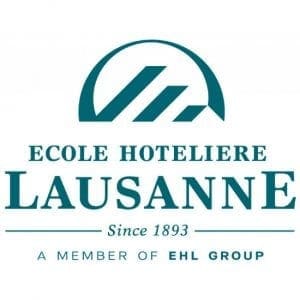 Many hoteliers consider OTAs to be their best sales channel. “Reservations are always coming in from Booking.com,” we hear them say. Reality is, as usual, a little more complex than it seems at first glance. The numbers tell a different story.
Many hoteliers consider OTAs to be their best sales channel. “Reservations are always coming in from Booking.com,” we hear them say. Reality is, as usual, a little more complex than it seems at first glance. The numbers tell a different story.
OTAs’ contribution to a hotel’s business is undeniable and should not be underestimated. Not only do they represent a significant part of the total reservations, but they are also instrumental in bringing independent hotels to potential guests.
OTAs are particularly useful for customers looking for a location rather than a hotel, who are especially price sensitive or who want to know the reviews that previous guests have left about this or that hotel. For many, OTAs are a recommendation engine before they are a booking engine.
However, OTAs do not allow for optimal positioning of your hotel against value-based competition. Your page on these platforms will be identical to any other, except for some photos. OTAs promote competition based on price – and little else.
“But all is well if Booking.com keeps sending me all these reservations, right?”
The truth is that careful data analysis reveals a different reality.
Traditionally, almost 40% of all reservations for a given year occur in the first quarter. Using GuestCentric’s platform we have analyzed the hundreds of thousands of reservations made in the first quarter of 2017.

Reservations from Booking.com show an average cancellation rate of 42%.
This rate goes up to 70% when the reservation is made more than 6 months in advance of the stay. In contrast, reservations made directly on the hotel’s website have a cancellation rate of less than 13%.
The high OTA cancellation rate often leads to a loss of revenue – when it is not possible to resell that unit for the same price – but it also represents an increased workload, especially when the hotel’s PMS, CRS and channel manager systems are not perfectly aligned.
In the end, taking into consideration the commissions paid for the reservations that actually go through and the time lost with those that are canceled, we conclude that a direct bookingÊ(which represents a higher revenue, since there is no commission to pay and also because its value is 57.5% higher on average) is worth as much as three OTA reservations.
Improve strategies and operations
Don’t waste any more time and start improving your strategy today: impose more restrictive policies for cancellations in reservations coming from OTAs.
At the same time, promote an emotional and deeper connection with your customers through your website and booking engine, working to differentiate your hotel from the competition and promoting direct bookings, which will be more resilient to cancellations.
It’s unthinkable to turn away from OTAs. It’s irresponsible to do it on your direct channel.
About the author
 Pedro Colaco is theÊCEO of GuestCentric Systems. He co-founded the company in October 2006 and has served as President and CEO since.ÊGuestCentric is a provider of cloud-based digital marketing software that helps hoteliers protect their brands, drive bookings and connect to their customers on all digital platforms.
Pedro Colaco is theÊCEO of GuestCentric Systems. He co-founded the company in October 2006 and has served as President and CEO since.ÊGuestCentric is a provider of cloud-based digital marketing software that helps hoteliers protect their brands, drive bookings and connect to their customers on all digital platforms.
.



















